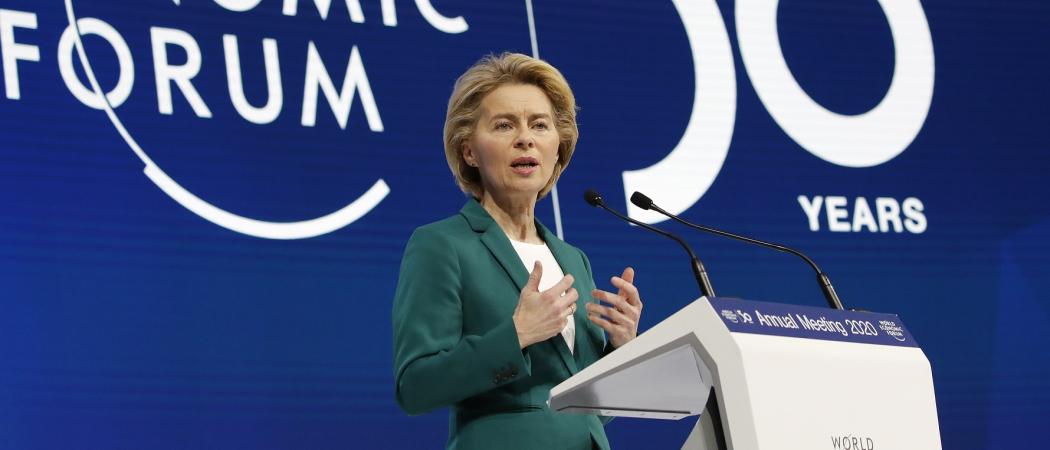Ursula von der Leyen wants huge virtual repository to give new life to unused research data, and be open to non-EU researchers

Ursula von der Leyen speaking in Davos. Photo: Stefan Wermuth, European Commission
The European Open Science Cloud, an enormous repository of research results that is due to go live later this year, will add new value to vast stores of unused data, Ursula von der Leyen, European Commission president pledged on Wednesday.
Speaking at the World Economic Forum in Davos, von der Leyen said the multi-billion euro project will transform research, with scientists having a vast collection of resources on tap. “Data is a renewable resource as much as sun and wind. Every 18 months we double the amount of data we produce, 85 per cent of which is never used,” she told delegates.
The plug for the cloud on one of the world’s biggest stages is the latest evidence von der Leyen will be as supportive of research as critics claimed her predecessor, Jean-Claude Juncker was not. In fact, it was rare to see Juncker putting his full weight behind any EU science initiative.
The open science cloud has been in the works since 2016, and is set to start operating in 2020. It will give researchers access to, “hidden treasures and untapped opportunities,” von der Leyen said. “This pool will be a resource for open innovation, and bring new solutions to the market.”
Once the governance framework is agreed, there will be broader access. “We will open this up to the broader public sector and to business as well. And the idea is that it will also open up to international players,” said von der Leyen.
The terms on how the cloud will be accessed, whether free, paid, or with embargoes or with other usage restrictions, are yet to be resolved.
Although the cloud is intended to make research data free at the point of use for scientists, commercial players could be required to pay for access.
When it comes to personal data, however, von der Leyen said, "the protection of a person's digital dignity" is an "overriding principle.” In addition, the commission will introduce new privacy rules for artificial intelligence, separate from the EU’s general data protection regulation.





 A unique international forum for public research organisations and companies to connect their external engagement with strategic interests around their R&D system.
A unique international forum for public research organisations and companies to connect their external engagement with strategic interests around their R&D system.